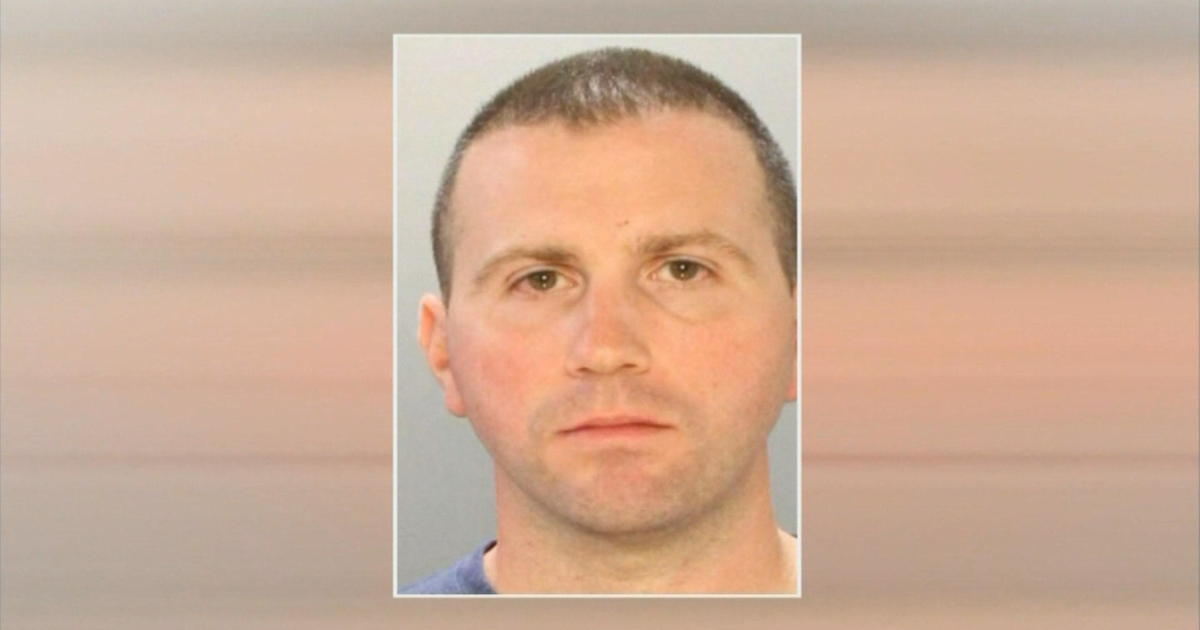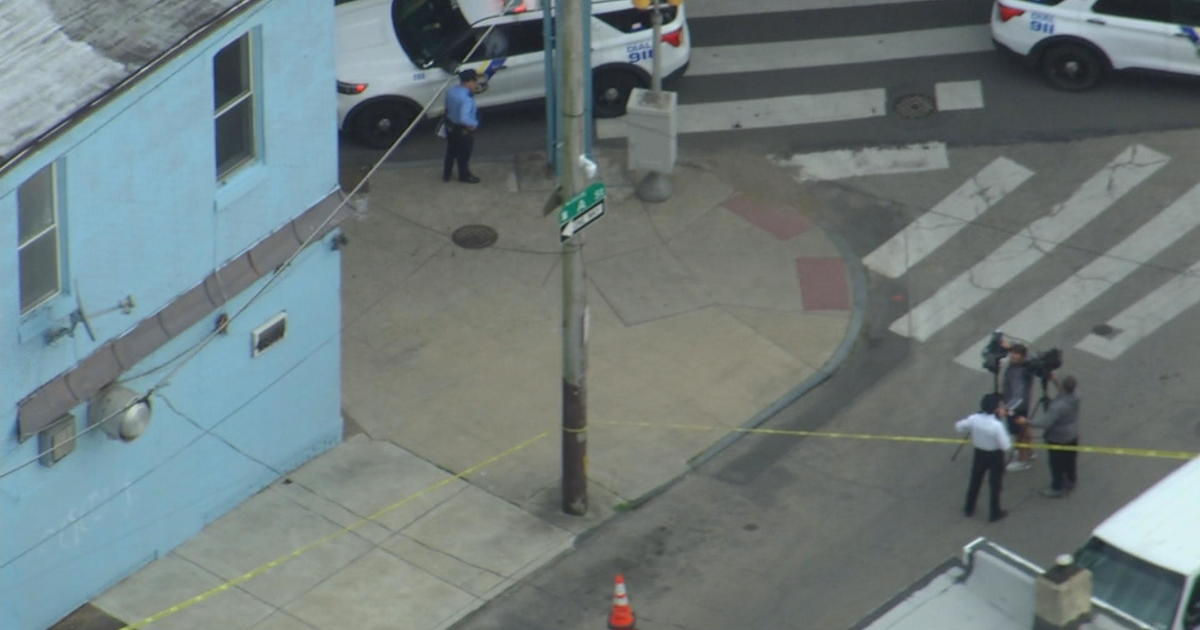DA: Oversight Failure Enabled Philadelphia Abortion Mill
PHILADELPHIA (AP) -- A filthy abortion mill where prosecutors say babies were delivered alive and killed with scissors would have been shut down long ago if not for extraordinary failures by state regulators, one of whom dismissed a death at the clinic with "people die," a grand jury report charges.
Dr. Kermit Gosnell, 69, a family practice physician with no certification in gynecology or obstetrics, was arraigned Thursday on eight counts of murder in the deaths of seven babies and one patient. Nine employees also have been charged, including four with murder.
Gosnell asked in court that seven of the murder charges be explained and raised his eyebrows as Magistrate Jane Rice detailed the allegations of the baby deaths.
In its report, the grand jury said failures of the Pennsylvania Department of Health and other agencies allowed Gosnell's "house of horrors" to persist for decades, with baby body parts on the shelves and clogging the plumbing, a 15-year-old high school student administering intravenous anesthesia, and Gosnell's wife, a cosmetologist, performing late-term procedures.
"Had state and local officials performed their duties properly, Gosnell's clinic would have been shut down decades ago," the grand jury wrote. "If inspectors had looked solely for violations of Pennsylvania's abortion regulations, there would have been ample grounds to revoke the approval of Gosnell's clinic as an abortion provider—as was demonstrated when DOH inspectors finally entered the facility in February 2010."
Philadelphia District Attorney Seth Williams accused the Health Department of "utter disregard" for Gosnell's patients, mostly poor minority women such as 41-year-old Karnamaya Mongar, who died at the clinic after being given too much Demerol and other drugs in November 2009, prosecutors said.
Complaints about Gosnell to state regulators went nowhere, even though 46 lawsuits had been filed against him. In its report, the grand jury quoted the department's chief counsel as saying there was nothing suspicious about Mongar's death because "people die."
The prosecutor, a Democrat who released the report a day after Republican Gov. Tom Corbett succeeded Democratic Gov. Ed Rendell, said he had no legal means to charge regulators, in part because of the time that had elapsed.
Corbett Spokesman Kevin Harley has pledged that the new administration would do more to oversee such clinics, but otherwise officials have not responded to repeated requests from The Associated Press for comment.
Lawyer William J. Brennan, who represented Gosnell during the investigation, has declined to comment.
The Health Department first gave the "Women's Medical Society" a one-year license when it opened in 1979, when a certified obstetrician/gynecologist and nurses were listed as employees. The state approval expired in 1980, but the next site review did not come until 1989.
By then, Gosnell was the only doctor on site, and the clinic had no nurses and no outside lab work being done. Promises were made to improve the failings, and the state renewed its approval. In 1992, a visit showed there were still no nurses or ob-gyn, and nothing suggests the state inspectors checked any patient files. The inspectors left blank the sections on who was providing anesthesia and post-operative care. They concluded there were "no deficiencies."
The final inspection came in April 1993, four years after Gosnell had promised to hire nurses. There were none. The state cited Gosnell for expired medications and missing lab work but said they had been remedied—though there was no follow-up inspection— three months later.
The grand jury suggested the state knew Gosnell and his clinic were offering unacceptable medical care; its report said race, socioeconomic status and politics were among the reasons why no action was taken.
"We think the reason no one acted is because the women in question were poor and of color, because the victims were infants without identities and because the subject was the political football of abortion," the report said.
Early last year, authorities raided Gosnell's clinic in search of controlled drug violations, but instead stumbled upon a stench-filled clinic with bags and bottles of aborted fetuses scattered throughout the building.
Gosnell also kept jars of severed feet on his shelves, Williams said. Gosnell also had a taste for macabre jokes, once muttering that a nearly six-pound baby born alive to a 17-year-old who was 7 ½ months pregnant could "walk me to the bus stop," the report said.
Under Pennsylvania law, abortions are illegal after 24 weeks of pregnancy, or just under six months, and most doctors won't perform them after 20 weeks because of the risks, prosecutors said.
In a typical late-term abortion, the fetus is dismembered in the uterus and then removed in pieces. That is more common than the procedure opponents call "partial-birth abortion," in which the fetus is partially extracted before being destroyed.
Gosnell typically worked weeknights, arriving hours after his unskilled staff administered anesthesia and drugs to induce labor. He then "forced the live birth of viable babies in the sixth, seventh, eighth month of pregnancy and then killed those babies by cutting into the back of the neck with scissors and severing their spinal cord," Williams said.
In addition to the Mongar and another woman who died, scores more were injured from perforated bowels, cervixes and uteruses, authorities said.
Women came from across the city, state and mid-Atlantic region for the illegal late-term procedures, authorities said. He didn't advertise, but word got around. They paid $325 for first-trimester abortions and $1,600 to $3,000 for abortions up to 30 weeks. The clinic took in up to $15,000 a day, authorities said.
White women from the suburbs were ushered into a separate, slightly cleaner area because Gosnell believed they were more likely to file complaints, Williams said.
Few if any of the unconscious patients knew their babies had been born alive and then killed, prosecutors said. Many were first-time mothers who were told they were 24 weeks pregnant, even if they were much further along, authorities said.
The grand jury spent a year investigating Gosnell's practice and noted that although hundreds of violations probably occurred over decades, destroyed records and elapsed time prevented more charges.
"These killings became so routine that no one could put an exact number on them," the grand jury report said.
Authorities charged that Gosnell deliberately hired unqualified staff so he could pay them low wages. He sent his six children to private schools—one is now a doctor and another a professor—and has a beach house at the New Jersey shore, prosecutors said.
Besides the five charged with murder, five other clinic employees, including Gosnell's third wife, Pearl, were charged with conspiracy, drug and other crimes. Pearl Gosnell performed extremely late-term abortions on Sundays when the clinic was otherwise closed, the report said. All 10 charged were in custody.
Gosnell earned his medical degree from Thomas Jefferson University in Philadelphia and is board certified in family practice. He started, but did not finish, a residency in obstetrics-gynecology, authorities said.
(© Copyright 2010 The Associated Press. All Rights Reserved. This material may not be published, broadcast, rewritten or redistributed.)



